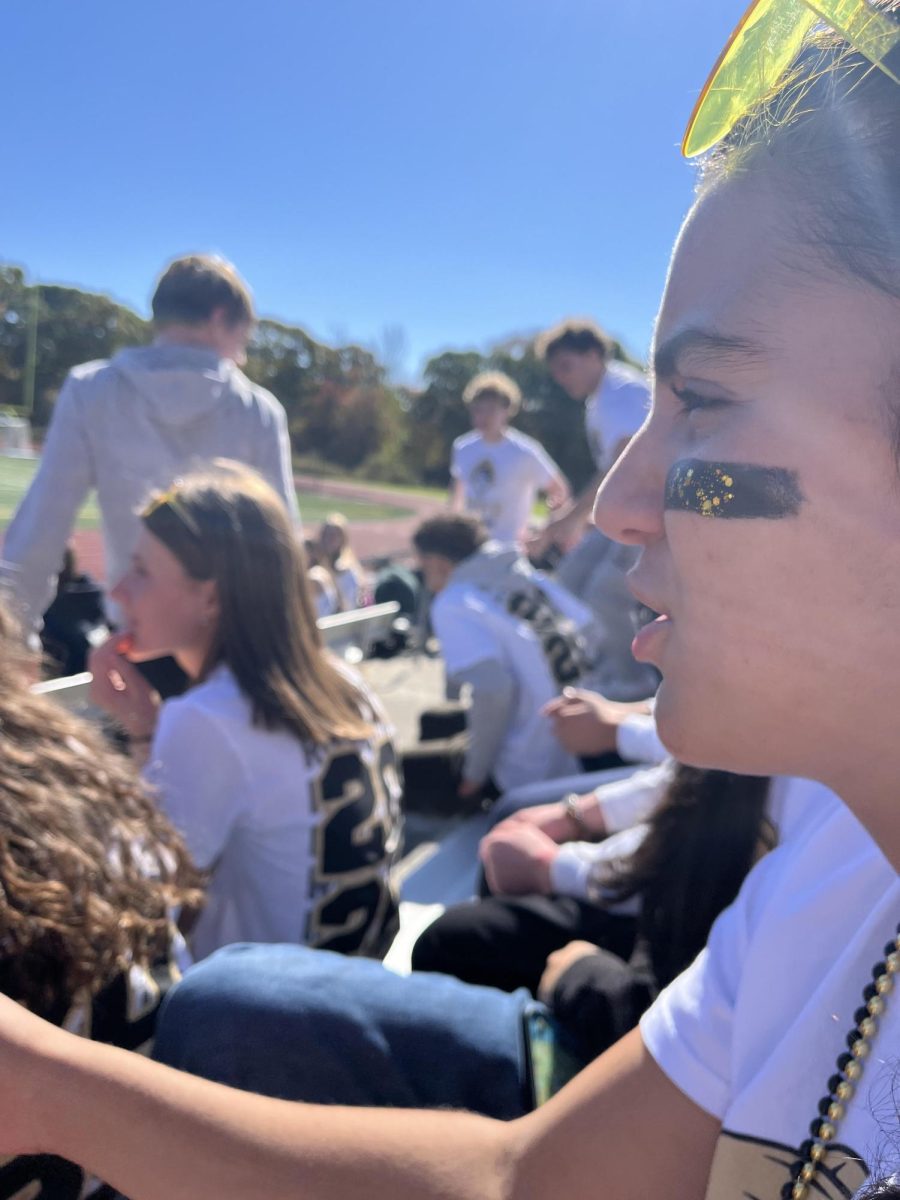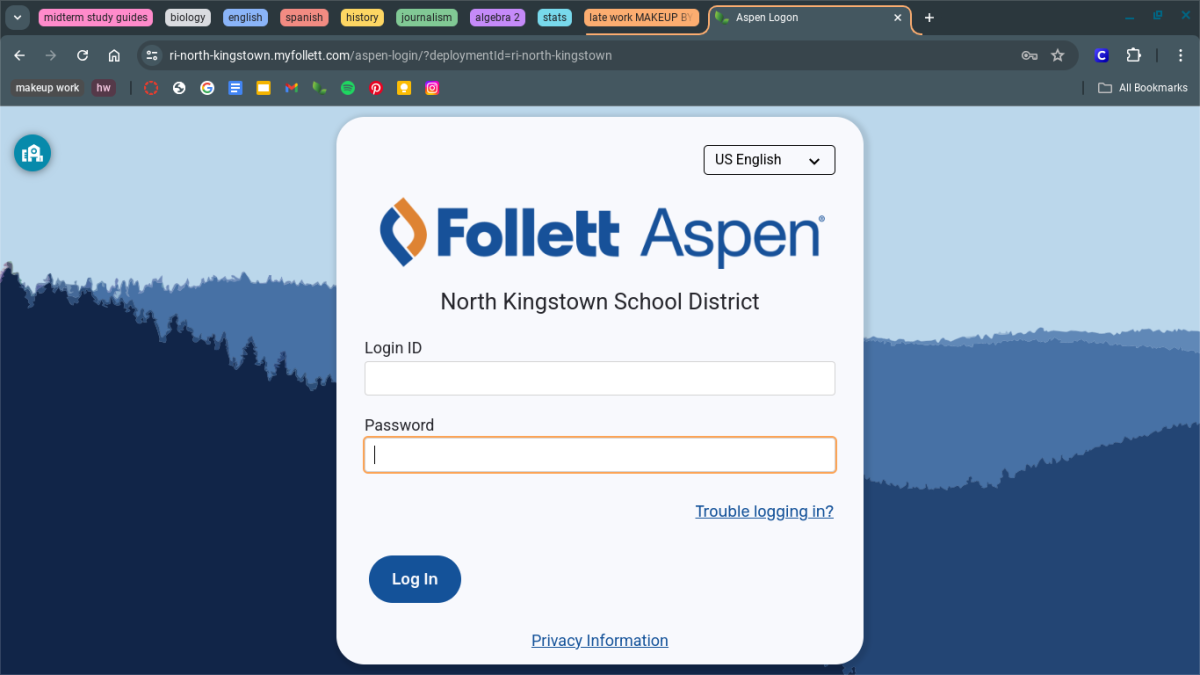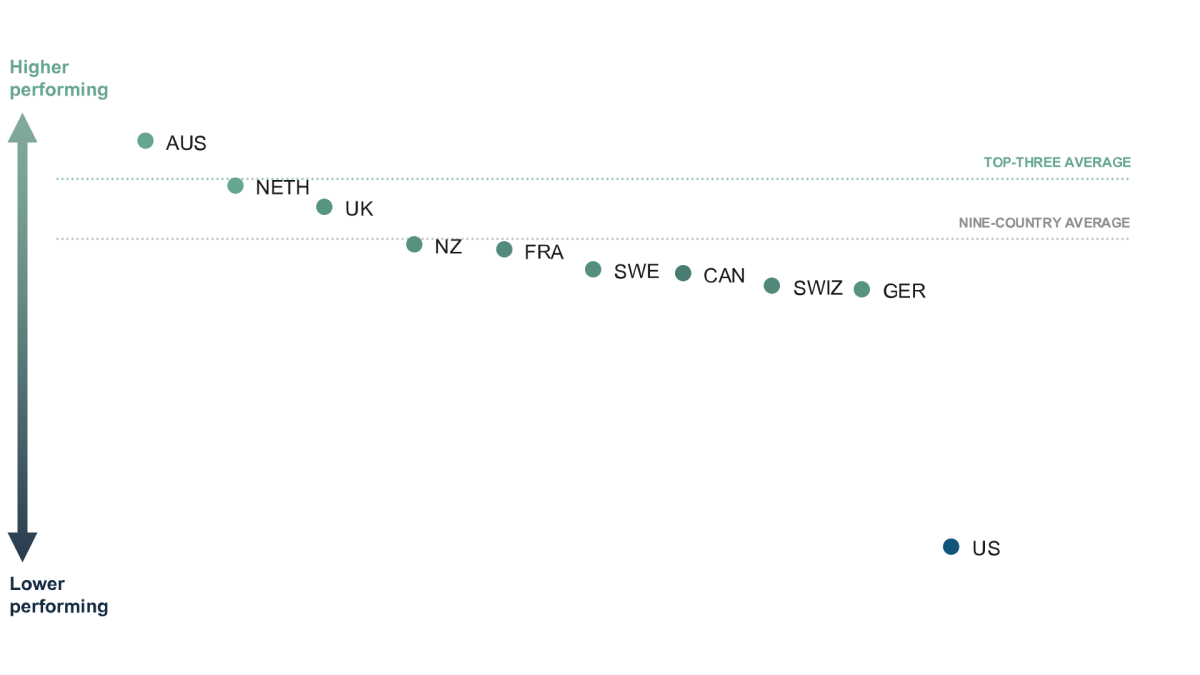NKHS expands opportunities for gaining college credit
Seniors Haley Kelly, Kara Schultz, Allie O’Connor, and Emily Healey pose with Elvis albums in their History of Pop class, which offers three EEP credits.
In an effort to counteract the ever-increasing costs of college, junior Kelsey Dellinger has begun earning college credits now. Along with Advanced Placement US History, which she is currently taking, Dellinger has already earned three college credits in conjunction with Rhode Island College’s Early Enrollment Program (EEP). She plans to supplement these credits with further EEP and AP courses during her senior year.
Over the past several years, NKHS has expanded its opportunities for students to earn free college credits beyond traditional AP courses. In tandem with RIC’s Early Enrollment Program, NKHS now offers college credit opportunities in six courses, ranging from Portuguese 4 to Leadership in Business to History of Jazz Music.
Each EEP course grants either three or four credits at RIC, all of which are transferable to hundreds of other colleges.
According to Mrs. Cindy Normand, EEP coordinator, earning college credit in each of the six EEP courses requires, in addition to completing the regular coursework, little more than “some extra paperwork.” Regardless of whether they decide to earn the college credit, all students generally follow the same curriculum in each course and complete the same assignments.
In contrast to AP courses, the receipt of college credit in EEP courses is not contingent upon passing a rigorous final exam. Instead, students solely need to earn a passing grade in the class.
Unlike in previous years, when students who wished to gain college credit in each EEP course incurred a fee of $190, Gov. Gina Raimondo’s “Prepare RI” program now allows students to earn EEP credits at no additional charge.
“EEP courses are a bargain for students,” Normand said. “It doesn’t make sense for students not to sign up for EEP credit [if they already have an interest in taking the courses].”
One of the major restrictions on the number of EEP courses offered at NKHS, Normand said, is that Rhode Island College only permits educators with master’s degrees to instruct EEP courses. Since not every teacher at NKHS has a master’s degree, only a limited number of teachers have been granted permission to instruct EEP courses.
One of these EEP instructors is Mrs. Paula Schiavone. Schiavone teaches Portuguese 4 Honors, a year-long course that yields four EEP credits. This is the second year in which NKHS students have the opportunity to earn EEP credit in Portuguese, which is the sixth most-spoken language on the globe.
According to Schiavone, former students who have gained EEP credit in Portuguese have been able to fulfill their foreign language requirement in college, take more advanced Portuguese classes, or even enter college with a semester’s worth of credits.
In order for her students to earn EEP credit, Schiavone needs to follow an approved syllabus from Rhode Island College. She acknowledged that the EEP requirements from RIC have made the course “more demanding than it was previously.”
However, Schiavone said that her students have risen to the challenges presented by the EEP program. “I’ve found that, when I set the bar higher for students, they tend to adjust their efforts and goals,” she said. “My Portuguese 4 students have definitely done that.”
Mrs. Toni Silveira, the school’s band teacher, also serves as an EEP instructor. Silveira teaches two EEP courses, History of Jazz Music and History of Pop Music 1. Although both courses, which are semester-long electives, are not new offerings, this is the first year in which students may earn EEP credit in them.
Silveira’s music history courses are open to students in grades 10 – 12 of all academic abilities. Students who wish to earn EEP credit are required to complete several additional projects over the course of the semester. The students who are interested in gaining EEP credit also receive honors-level credit.
Silveira likes that History of Jazz and History of Pop Music 1 attract a wide range of students who are interested in music, such as those who are not suited to a traditional chorus, band, or orchestra course. “Not only do I have members of the chorus or band in my [music history] classes, but I also have students who play guitar and enjoy listening to music,” she said.
According to Normand, the only drawback of taking an EEP course is that a student’s final grade will still appear on their transcript at Rhode Island College if they do poorly. Students are not able to erase a poor grade in an EEP course from their transcript if they choose to attend RIC. For this reason, Normand advises that students “be serious about the EEP courses that they are interested in taking.”
The potential risk that accompanies EEP courses does not deter Dellinger from signing up for them. Dellinger has already taken Leadership in Business, which she found to be “very informative.” In the course, she studied the history of American labor, learned how businesses are organized, and gained insight on how to motivate other people.
Along with several AP courses, Dellinger plans to take two additional EEP courses next year: Portuguese 4 Honors and Personal Finance and Investments.
“EEP courses are great because they allow me to save money and do college coursework in subjects that I like at the same time,” Dellinger said.
Your donation will support the student journalists of North Kingstown High School. Your contribution will allow us to distribute a print edition of the Current Wave to all students, as well as enter journalism competitions.











